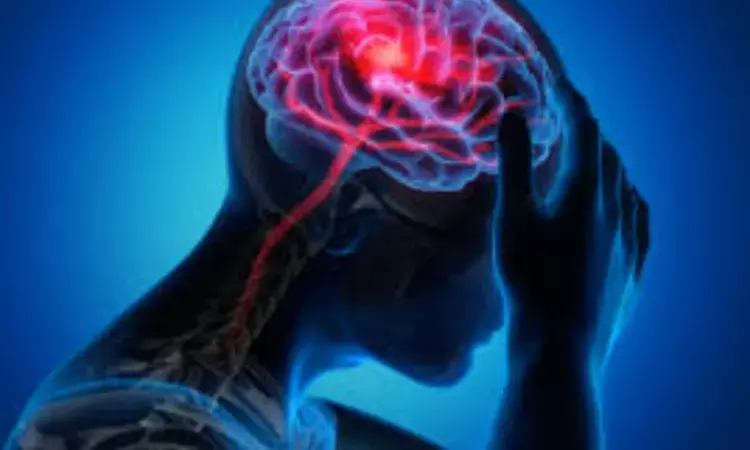- Home
- Medical news & Guidelines
- Anesthesiology
- Cardiology and CTVS
- Critical Care
- Dentistry
- Dermatology
- Diabetes and Endocrinology
- ENT
- Gastroenterology
- Medicine
- Nephrology
- Neurology
- Obstretics-Gynaecology
- Oncology
- Ophthalmology
- Orthopaedics
- Pediatrics-Neonatology
- Psychiatry
- Pulmonology
- Radiology
- Surgery
- Urology
- Laboratory Medicine
- Diet
- Nursing
- Paramedical
- Physiotherapy
- Health news
- Fact Check
- Bone Health Fact Check
- Brain Health Fact Check
- Cancer Related Fact Check
- Child Care Fact Check
- Dental and oral health fact check
- Diabetes and metabolic health fact check
- Diet and Nutrition Fact Check
- Eye and ENT Care Fact Check
- Fitness fact check
- Gut health fact check
- Heart health fact check
- Kidney health fact check
- Medical education fact check
- Men's health fact check
- Respiratory fact check
- Skin and hair care fact check
- Vaccine and Immunization fact check
- Women's health fact check
- AYUSH
- State News
- Andaman and Nicobar Islands
- Andhra Pradesh
- Arunachal Pradesh
- Assam
- Bihar
- Chandigarh
- Chattisgarh
- Dadra and Nagar Haveli
- Daman and Diu
- Delhi
- Goa
- Gujarat
- Haryana
- Himachal Pradesh
- Jammu & Kashmir
- Jharkhand
- Karnataka
- Kerala
- Ladakh
- Lakshadweep
- Madhya Pradesh
- Maharashtra
- Manipur
- Meghalaya
- Mizoram
- Nagaland
- Odisha
- Puducherry
- Punjab
- Rajasthan
- Sikkim
- Tamil Nadu
- Telangana
- Tripura
- Uttar Pradesh
- Uttrakhand
- West Bengal
- Medical Education
- Industry
Combining Argatroban or Eptifibatide with Thrombolysis Does Not Benefit Stroke Patients: NEJM

A recent clinical trial published in the New England Journal of Medicine revealed that the addition of argatroban, an anticoagulant, or eptifibatide, an antiplatelet agent, to standard intravenous thrombolysis for acute ischemic stroke does not improve outcomes and may increase mortality. The trial was conducted across 57 sites in the US to assess whether combining these agents with thrombolysis could reduce post-stroke disability and improve recovery in stroke patients.
The study included a total of 514 patients who had received intravenous thrombolysis (with 70% receiving alteplase and 30% receiving tenecteplase) within 3 hours of stroke onset. The participants were randomly assigned to receive either argatroban, eptifibatide or a placebo within 75 minutes of starting thrombolysis. This study assessed both the efficacy and safety of the adjunctive treatments, using the utility-weighted 90-day modified Rankin scale (mRS) score to measure disability and symptomatic intracranial hemorrhage to assess safety.
The primary efficacy outcome was the mRS score at 90 days which ranges from 0 (no symptoms) to 10 (severe disability), with higher scores by indicating better functional outcomes. The placebo group had a mean score of 6.8 by suggesting relatively better outcomes than both the argatroban (mean score of 5.2) and eptifibatide groups (mean score of 6.3). This indicates that neither argatroban nor eptifibatide significantly improved recovery after stroke when compared to placebo.
The incidence of symptomatic intracranial hemorrhage was low across all groups, with no significant differences (4% in the argatroban group, 3% in the eptifibatide group, and 2% in the placebo group). The patients in the argatroban group had a mortality rate of 24%, double that of the eptifibatide group (12%) and triple that of the placebo group (8%).
The findings suggest that the addition of these agents to standard thrombolysis therapy does not provide added benefit in reducing disability and might pose increased risks. The posterior probability that argatroban improved outcomes when compared to placebo was only 0.002, and for eptifibatide, it was 0.041 which were both far from showing a significant benefit.
Overall, while intravenous thrombolysis remains a standard treatment for acute ischemic stroke, this trial demonstrates that adding argatroban or eptifibatide to the regimen does not improve recovery and may be associated with higher mortality rates. Further research is imperative to explore alternative strategies for improving outcomes in stroke patients without increasing risks.
Reference:
Adeoye, O., Broderick, J., Derdeyn, C. P., Grotta, J. C., Barsan, W., Bentho, O., Berry, S., Concha, M., Davis, I., Demel, S., Elm, J., Gentile, N., Graves, T., Hoffman, M., Huang, J., Ingles, J., Janis, S., Jasne, A. S., Khatri, P., … Barreto, A. D. (2024). Adjunctive Intravenous Argatroban or Eptifibatide for Ischemic Stroke. In New England Journal of Medicine (Vol. 391, Issue 9, pp. 810–820). Massachusetts Medical Society. https://doi.org/10.1056/nejmoa2314779
Neuroscience Masters graduate
Jacinthlyn Sylvia, a Neuroscience Master's graduate from Chennai has worked extensively in deciphering the neurobiology of cognition and motor control in aging. She also has spread-out exposure to Neurosurgery from her Bachelor’s. She is currently involved in active Neuro-Oncology research. She is an upcoming neuroscientist with a fiery passion for writing. Her news cover at Medical Dialogues feature recent discoveries and updates from the healthcare and biomedical research fields. She can be reached at editorial@medicaldialogues.in
Dr Kamal Kant Kohli-MBBS, DTCD- a chest specialist with more than 30 years of practice and a flair for writing clinical articles, Dr Kamal Kant Kohli joined Medical Dialogues as a Chief Editor of Medical News. Besides writing articles, as an editor, he proofreads and verifies all the medical content published on Medical Dialogues including those coming from journals, studies,medical conferences,guidelines etc. Email: drkohli@medicaldialogues.in. Contact no. 011-43720751


